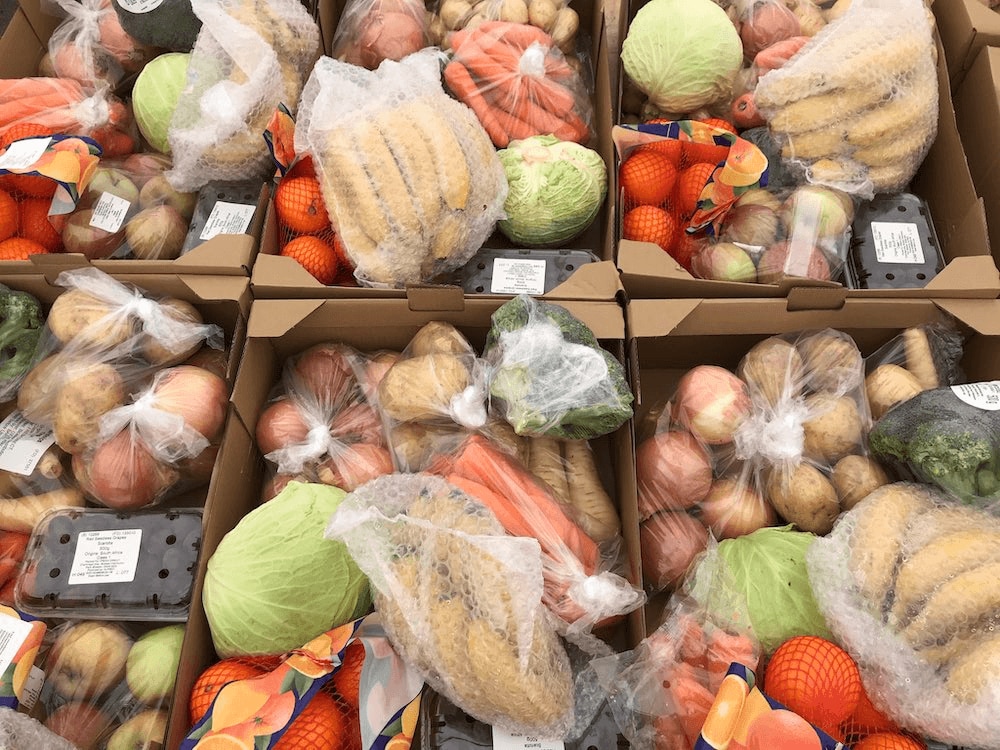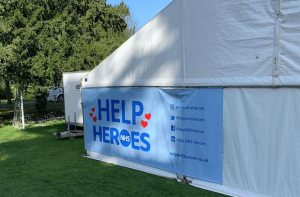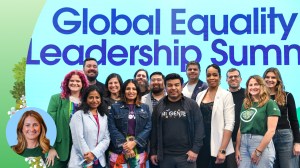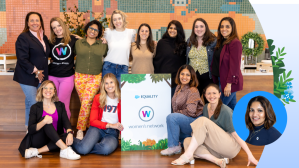When Nick Mitchell, Senior Regional Vice President of Salesforce UK, woke up on Friday, March 20, he had little idea how his weekend was about to unfold. But then he switched on the TV news and spotted a story that changed it all.
What caught Mitchell’s eye was a social media post that had gone viral overnight. A critical care nurse, Dawn Bilbrough, had made a tearful request to the public to stop panic buying.
Bilbrough, who had just completed a grueling 48-hour shift at a York hospital, explained in her video that she had visited a store to pick up basic food items but was confronted by empty shelves. The nurse took to Facebook from the front seat of her car to tell the world: “So I’ve just come out of the supermarket. There’s no fruit and veg, and I had a little cry in there.”
For Mitchell, seeing the nurse’s dismay was profoundly affecting. “Given the amazing work that our National Health Service (NHS) workers have been putting in during the COVID-19 outbreak, it didn’t seem right that they were unable to get hold of basic food items after their shifts,” he says. “So, when I got a call later that night from a friend who had also seen the video and wondered if Salesforce could do something to help, I didn’t think twice.”
Putting values into action
Mitchell’s friend, entrepreneur Jason Mawer, had been so moved by Bilbrough’s plight that he decided to launch a campaign, Help NHS Heroes.
Mawer wanted volunteers to help him create an online food box service for NHS hospital staff, so they could pick up groceries at their places of work. He’d already got some food wholesalers, logistics partners, and The Lister Hospital in Stevenage interested in trialling the program. But with a launch planned in 10 days’ time or less, what he really needed was an app to help people register, pay for their boxes, then arrange to collect them at a time that best suited their particular shift pattern. Could Salesforce employee volunteers use our technology to build one?
“We talk a lot about our values at Salesforce. Building trust, supporting our customers’ success, ensuring equality, and driving innovation. At times like this, faced with a global crisis, it’s more important than ever to put those values into action,” Mitchell says.
“I reached out to our people asking for volunteers and got an extraordinary response. Not even 24 hours later, I had a core team of about 15 highly capable developers — all in lockdown, working remotely from their homes — prepped and ready to go.”
Designing a frictionless user experience
The Salesforce volunteers needed to figure out how their app could best connect the food sitting in the wholesaler partners’ warehouses with the NHS workers who needed it most. The team knew that Mawer planned to set up pop-up grocery stores on hospital premises, where participating health workers would collect their boxes of food. The goal was for the program’s main supermarket partners, www.brake.co.uk, Ocado and Fresh Direct, to fill each box with groceries to feed a balanced diet to a family of four for two days.
“So, our app needed to help people register, pay for their boxes, then arrange to collect them at a time that best suited their particular shift pattern,” explains Mitchell. “Our starting point was to ask, ‘how can we make sure that’s a frictionless process?’”
Distribution was another piece of the puzzle. How would the volunteers staffing the pop-ups identify individuals when they came to collect their food? The team decided it was most effective for healthcare workers to show their NHS ID and give a collection number that the app would produce to ensure the right boxes went to the right people at the right times.
Finally, the app had to have room for NHS users to give feedback. “We wanted to know how people felt about the program and our app itself. We wanted to hear everything!” says Richard Hind, Director, Solution Engineering, Salesforce, and a key member of the volunteer team.
Collaborating for success
With a clear goal in mind, and powerful collaboration tools like Quip and Chatter to allow for frequent progress reports, the volunteers got going, designing user journeys and working out what data needed to be captured. Leading this effort was Amelia Munsey, Solution Engineer at Salesforce.
“Once we’d planned out our data model, some people got on with building wireframes for the app and ensuring it had a consistent look and feel. Meanwhile, others were working on what we called an ‘agility layer.’ We knew that even though we were starting off with one hospital, we might need to rapidly scale up to hundreds, so we needed to plan for that possibility and build something that would be flexible enough to cope,” says Munsey.
Working long hours, with regular check-in calls with the wider Help NHS Heroes team, the volunteers completed the bulk of the app’s development in three days.
At the same time, hundreds of other Salesforce volunteers had got in touch looking to donate their time as testers. “It was a magical response!” says Munsey.
“We curated a small army of people and asked them to go through a rigorous process that would allow us to test every scenario. We collected feedback and tracked every bug that came along to ensure we’d be able to execute properly.”
Meanwhile, the broader Help NHS Heroes team was working around the clock to set up the pop-up grocery stall at The Lister in Stevenage, complete with refrigerated units for storing food.

“We started getting photos from Jason showing the site as it took shape, and then the first food boxes turning up at the hospital — there was a real sense that the finish line was in view. It was really exciting to see how our technology was playing a big part in a much wider puzzle,” says Munsey.
Overcoming setbacks
Building the app wasn’t entirely without setbacks. For example, integrating a payment system created technical complexities that the Salesforce team hadn’t foreseen. “As quite a number of grocery suppliers are involved, payments needed to go in a number of different directions,” explains Hind.
There were also logistical road bumps to overcome. “There’s a finite number of boxes that people can buy. So we had to develop — extremely rapidly — a form of inventory management capability on our platform, because there would be nothing worse than an NHS worker placing an order to turn up and find out we’d run out of stock,” Hind says. “We were quick to put some checks and balances into the solution that prevented any points of failure like that.”
Helping NHS heroes
Just 10 days after the idea was conceived, the Help NHS Heroes initiative was ready to launch. As the project went live, healthcare staff started downloading the app and the first food box orders began to roll in.
“The response has been astounding. So far, 5,000 workers at six hospitals have registered, and we’ve distributed more than 2,000 food boxes, but also many many other donated products too” says Mitchell.
“The comments we’ve been getting are just great, too. ‘Wow, this is so amazing!’ reads a typical one. ‘We are all totally overwhelmed today, so I can’t tell you how much stress this has taken away from me. Tomorrow’s my first day off in seven days and because I do not have to visit the supermarket, I can spend time with my children before coming back to work. Thank you very, very much.’”
A second facility has now been launched at the Royal Berkshire Hospital in Reading. Here, a pop-up café is providing breakfast free of charge for workers on back-to-back shifts.
Mawer, who continues to lead the Help NHS Heroes initiative, is grateful. “We have been incredibly lucky to receive the support of established experts such as PwC and Salesforce to ensure that we have the technology to support the programme on a local and national basis.”
The widespread success of the food box service has led to 40 more NHS organizations expressing interest in bringing the campaign to their hospitals. Help NHS Heroes is currently working with logistical partners to secure national supply for when the program extends.
Says Paul Smith, Executive Vice President and General Manager, Salesforce UK, “Given the sacrifice that doctors, nurses and other NHS workers are making for us, we wanted to do what we can to help them get the essentials they need. What’s next is scaling the project so we can help NHS heroes across the country,”
“For me, the best bit was that everyone at Salesforce who volunteered felt really strongly about the need for this app,” adds Munsey. “There was a collective feeling that this project could not fail, no matter what. And we faced the challenge head on. That was a big reason for the app’s success, and I felt so proud to be a part of it.”
The original team has since transitioned the project to partners, PwC, Help NHS Heroes, and Salesforce.org. To learn more or support the initiative, visit the Help NHS Heroes website and Twitter.














